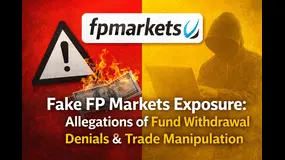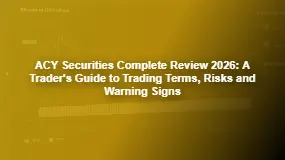Abstract:Malaysia has seen a persistent rise in money game schemes, luring thousands of unsuspecting investors with promises of high returns and minimal risk. These schemes operate under various disguises, from investment clubs to digital asset platforms, yet they all follow the same fundamental principle—new investors fund the profits of earlier participants. Once the cycle collapses, the majority are left with devastating losses. Despite repeated warnings and high-profile cases, many Malaysians continue to fall victim. What drives this phenomenon?

Malaysia has seen a persistent rise in money game schemes, luring thousands of unsuspecting investors with promises of high returns and minimal risk. These schemes operate under various disguises, from investment clubs to digital asset platforms, yet they all follow the same fundamental principle—new investors fund the profits of earlier participants. Once the cycle collapses, the majority are left with devastating losses. Despite repeated warnings and high-profile cases, many Malaysians continue to fall victim. What drives this phenomenon?
Economic hardship and financial aspirations play a significant role in the popularity of money games. Many Malaysians face stagnant wages, rising living costs, and limited investment opportunities. When presented with an opportunity that claims to offer exponential returns with little effort, it becomes difficult to resist. Unlike traditional investments that require patience and knowledge, money games promise near-instant rewards, making them especially appealing to those seeking financial relief.

One of the most infamous cases in Malaysia is JJ Poor to Rich (JJPTR). Launched in 2015, JJPTR promised investors a 20% monthly return, allegedly through foreign exchange trading. In April 2017, the scheme collapsed, with its founder claiming that US$400 million was lost due to hacked trading accounts. Thousands of investors suffered significant losses as a result.
Another significant scheme was MBI International. Operating under the guise of a reward system, MBI attracted numerous investors with the promise of lucrative returns. However, authorities later identified it as an unregistered collective investment scheme, leading to legal action and substantial financial losses for participants.
The M Mall, associated with MBI Group, was another venture that lured investors with promises of high returns through investments in retail spaces. This scheme also faced legal scrutiny, highlighting the risks associated with unregulated investment platforms.
Trust is another crucial factor. Many schemes rely on social networks to attract new participants, using word-of-mouth endorsements to build credibility. Friends, colleagues, or even family members who claim to have made profits become powerful persuaders. This personal connection often overrides rational scepticism, leading individuals to invest without conducting due diligence.
The psychological mechanisms behind money game investments are deeply rooted in behavioural finance. Greed and the fear of missing out (FOMO) drive many individuals to participate, even when warning signs are apparent. Seeing others generate returns reinforces the belief that the opportunity is legitimate. Many convince themselves that they can exit before the scheme collapses, failing to realise that most will be caught at the losing end.
Social pressure further amplifies this behaviour. When a close friend or relative introduces an investment opportunity, rejecting it may strain relationships. Some feel compelled to invest simply to maintain social harmony, regardless of their doubts. Others convince themselves that collective participation provides a form of security.
Individuals must critically assess investment opportunities, recognising that if something appears too good to be true, it often is. By understanding the tactics employed by these schemes and the psychological triggers they exploit, potential investors can better protect themselves from falling victim to such fraudulent activities.











